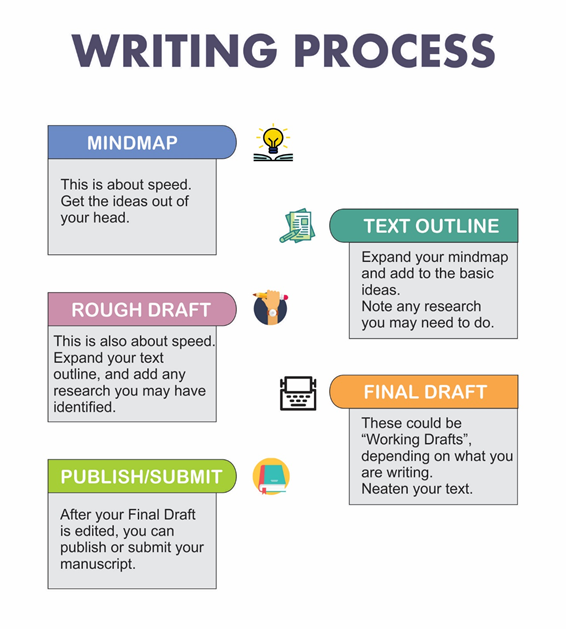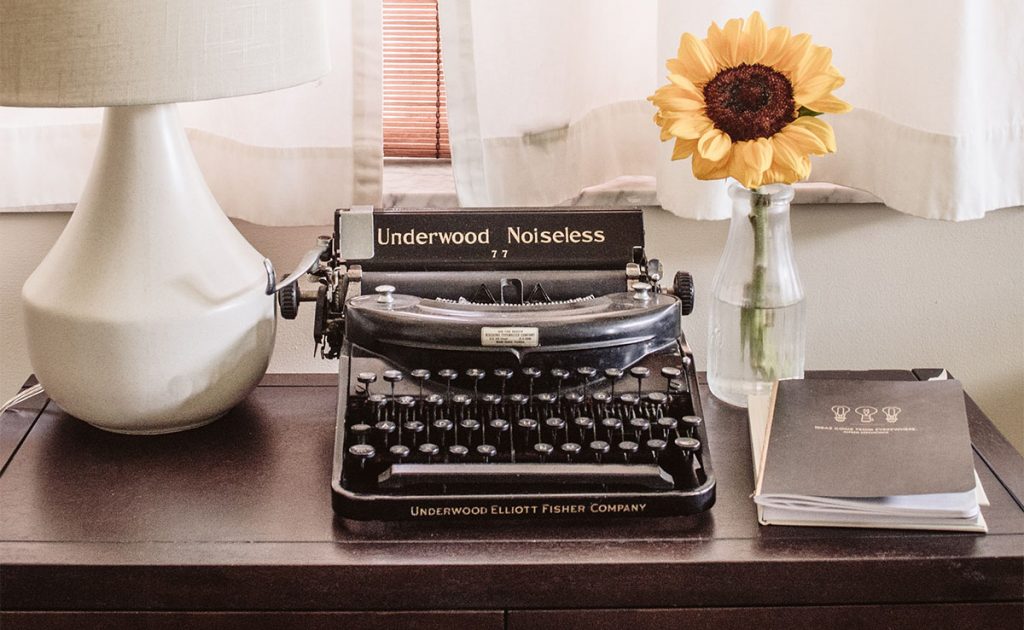Is writer’s procrastination a problem for you?
The good news is that although it’s common, it is not incurable.
Procrastination is very possibly the biggest obstacle writers encounter (or complain about).
Even veteran and published authors encounter writer’s procrastination…
Margaret Atwood, an author of five decades, says she spends “the morning procrastinating and worrying, and then plunges into the manuscript in a frenzy of anxiety around 3:00 p.m.”
Over the last few years, I have asked myself, what’s the real reason behind procrastination?
It turns out that procrastination is not actually a new phenomenon. The Greek poet Hesiod, writing around 800 B.C., cautioned not to “put your work off till tomorrow and the day after.”
The Cambridge Dictionary defines procrastination as “to keep delaying something that must be done, often because it is unpleasant or boring.”
Hmmm… “unpleasant or boring”; to this, I would add “difficult”.
Types of Writer’s Procrastination
Did you know there are four types of procrastination?
Which type are you subject to?
1. Anxious procrastination
“The unschedule method involves filling your schedule with fun activities and rest before scheduling in any work. For example, if you find yourself checking Facebook for 15 minutes at 3 pm every afternoon, schedule in Facebook time first and plan your work around that.”[3]
Does that sound familiar?
2. Fun procrastination
This sounds like the type of procrastinator many writers are. We would rather be writing a new chapter than rewriting or reviewing an existing chapter for N-th time, right? Or we rather check out the latest gossip on Facebook, instead of getting started on the new blog post.
If you’re procrastinating with writing a chapter in the middle of your novel, for example, consider uploading tweets, or doing some other book marketing (or promotion).
3. “Plenty of time” procrastination
Uh-oh, do you fall in this category? I know I often do. An idea to get around this is to set yourself a deadline, and take it a step further: make your deadline public.
4. Perfectionist procrastination
Many writers are guilty of this one. So often it is because writers are “constantly criticizing their own work.”
“If you wait for things to be perfect, you walk away with nothing. Just jump in and get started.”
– Jennifer Ritchie Payette
Digging Deeper into Writer’s Procrastination
Writers and procrastination are synonymous—a few years ago someone told me that procrastination is an “occupational hazard” of writing. Phew.
I once heard about an editor who reported that a book that was started in 1972 was eventually published in the late 1990s. Now that’s serious procrastination!
Why do writers procrastinate?
“Work finally begins when the fear of doing nothing exceeds the fear of doing it badly.” – Alain de Botton
So, why do we procrastinate? Really?
Psychological researchers have done studies on this. This post is a very unscientific study; here I cover what I’ve experienced and observed after 40 years in the writing field.
Your days as a student (if you were one) are gone. There is no professor or teacher (or parents) standing over you to get an assignment done. Now it’s up to you, and you need self-discipline and self-motivation. Also, we’re now doing something we like (writing). Or are we?
Let’s pull back the curtain, and look at what the real cause of procrastination can be…
Fear of failure
“Oh, the embarrassment if no one likes what I’ve written.” Subconsciously this can be a tremendous block, and it is common to procrastinate. This is where you think that “If I don’t start I can’t fail.”
Imposter syndrome
This is closely related to a fear of failure.
In her TED talk, Elizabeth Cox speaks about imposter syndrome and shares that “Even after writing eleven books and winning several prestigious awards, Maya Angelou couldn’t escape the nagging doubt that she hadn’t really earned her accomplishments.”
Psychology Today offers us this: “The imposter syndrome is a psychological term referring to a pattern of behavior where people doubt their accomplishments and have a persistent, often internalized fear of being exposed as a fraud.”
Those are just some of the common reasons for writer’s procrastination.
Here are some not so common reasons, and these are not generally spoken about.
You don’t like what you do
Think of chores around the house, like doing the laundry or mowing the lawn. Almost all of us procrastinate to do this. If you’re a freelance writer, you can relate to this. If you’re not keen on the topic of a writing assignment, you will tend to procrastinate.
Yes, you need to “bring home the bacon” because you are making a living with your writing, but it can almost certainly be an uphill battle.
And then there’s the marketing and promotion of our books. Don’t you also feel that you just want to write, and leave the marketing to someone else? This is where Storiad’s book marketing tool can be a tremendous aid.
Think about the real reasons you procrastinate and if you identify this as one of the reasons, re-consider. If you find what you’re doing unpleasant, drop it and change. Life is too short to put ourselves under stress, or unpleasantness. Seriously.
You’re bored with writing
It can happen.
It is common that when you come to a difficult part of the writing (e.g. the middle of your novel), boredom can set in.
Similarly, if you’re writing in the same genre or blog topics, it is not uncommon to become bored, and that leads to procrastination.
Bestselling author, Jeff Goins says, “Books get written in the most boring way possible: you have to sit down and write them.”
When you get to the sixth re-write, keeping the enthusiasm going can be a challenge. I had a friend a few years ago who said, “I’m so sick of reading this book, I wish I could just throw it in the bin.”
As a technical writer, I would ask myself, how many times can I write, “Click the open tab and enter your user name.” with enthusiasm. But when your writing puts food on the table, you tend to find the muse to overcome boredom with what you’re writing.
Lack of Self-discipline
We, humans, are inherently a lazy species, and we like to conserve energy all the while seeking out instant gratification. Writing a book is a marathon and something that you’re in for the long haul. Here I’m talking about a quality piece of literature, not some half-baked, poorly written little ebook. This also applies to an epic blog post of around 2,500 – 3,000 words. It takes time, and without self-discipline, it will be nearly impossible.
In the technical writing and journalism fields, the writer who suffered from procrastination would have had a short career. These fields of writing run-on deadlines, and in technical writing, there are almost always penalties attached to the deadlines.
Ideas to Avoid Writer’s Procrastination
Why do you write?
This is not a trick question. Think about, and come up with the real reason you write. If your “Why?” is not strong enough, you may very well find yourself falling into the procrastination trap often and regularly.
Spend some time and really think about the reason you have chosen to follow the path of writing. It will be an investment well worth it.
Record your successes
If you finish a chapter, celebrate. If you get the first draft of your blog post done, celebrate. Did you get positive reviews? Save them in a word processor file, and re-read them. This can feed your subconscious mind, and there is great power there.
Use a system
Using a system goes a long way to minimizing or even overcoming writer’s procrastination. I know, writers are creatives and free spirits, but using a system (even a simple one) does work.

Looking at just one tool in a system: The outline.
Writer’s block is closely related to the reasons we fall into writer’s procrastination. Using an outline, we can avoid writer’s block, and in so doing the fear of facing the “blank page” is not there anymore.
Bestselling author Jerry Jenkins, in his free ebook, “How to Overcome Writer’s Block Once and for All” shares the following on how he deals with procrastination:
“When I’m scoping out my writing calendar for a new book, I decide on the number of pages I must finish each writing day to make my deadline. Then I actually schedule Procrastination days.”
Set a deadline
Even if you aren’t writing to a client’s deadline, set one for yourself. And ideally, make it known publicly. It is amazing what a deadline can do for procrastination.
Establish a routine
Many famous authors follow a routine with their writing. And that is because it works, and can be a huge benefit to beating writer’s procrastination.
Stephen King, for example, starts with “a glass of water or a cup of tea. There’s a certain time I sit down, from 8:00 to 8:30, somewhere within that half hour every morning, I have my vitamin pill and my music, sit in the same seat, and the papers are all arranged in the same places… The cumulative purpose of doing these things the same way every day seems to be a way of saying to the mind, you’re going to be dreaming soon.”
Maya Angelou, on the other hand, explains, “I keep a hotel room in which I do my work a tiny, mean room with just a bed, and sometimes if I can find it, a face basin. I keep a dictionary, a Bible, a deck of cards and a bottle of sherry in the room. I try to get there around 7, and I work until 2 in the afternoon.”
Overcoming Writer’s Procrastination
Writer’s procrastination is not an unbeatable demon. Agreed, it will take some effort to face it head-on, but you can beat it.
Use items discussed in this post, take time out, give it some thought, and ask yourself (if you journal that would be the ideal place to answer the question): What’s the real reason I am procrastinating? No one else is going to see what you write, so be honest with yourself. When you have the answer you can address it, and who knows, you may just be able to beat the procrastination demon.
I wish you well on your writing journey.
Do you procrastinate? Have you found a way to minimize it? Let us know in the comments below.


Pingback: repaglinide transdermal patch
Pingback: is remeron a benzodiazepine
Pingback: acarbose cats
Pingback: diltiazem hydrochloride er
Pingback: para que sirve amitriptyline 10 mg
Pingback: protonix withdrawal
Pingback: effexor withdrawals
Pingback: actos pharmaceutical
Pingback: is robaxin habit forming
Pingback: abilify alcohol
Pingback: ezetimibe drug action
Pingback: venlafaxine taper
Pingback: spironolactone upset stomach
Pingback: supplementing synthroid
Pingback: voltaren gel used for what
Pingback: alogliptin to sitagliptin conversion
Pingback: can i buy tamsulosin over the counter
Pingback: tizanidine and ambien
Pingback: stromectol 3 mg
Pingback: sildenafil effects
Pingback: viagra singapore prescription
Pingback: stromectol online canada
Pingback: how much does ivermectin cost
Pingback: where to buy ivermectin
Pingback: ivermectin price comparison
Pingback: what is vardenafil used for
Pingback: where can you buy viagra over the counter
Pingback: tadalafil 20 mg tablets
Pingback: tadalafil back pain
Pingback: ivermectin 2mg
Pingback: animal porn
Pingback: animal porn
Pingback: anan脹n am脹
Pingback: child porn
Pingback: child porn
Pingback: porn
Pingback: Cocuk pornosu
Pingback: child porn
Pingback: child porn
Pingback: child porn
Pingback: porn